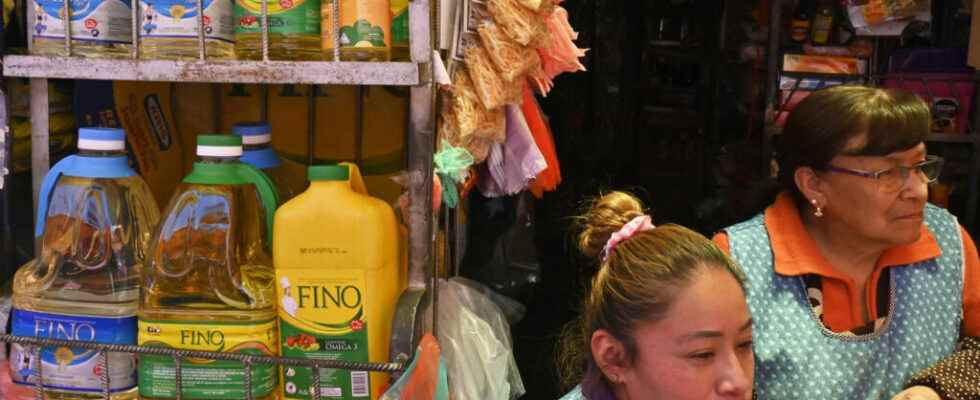The Bolivian government announced on Wednesday evening the cessation of exports of products such as soy derivatives and beef. A decision in response to the blockages that paralyze Santa Cruz, the economic heart of the country: it has now been seven days since government opponents blocked the city to demand a census next year, which should have been organized in 2022.
With our correspondent in La Paz, Alice Campaignolle
Seeds, cakes and integral soy flour; sugar, oil and beef: here are the six foods that have just been banned for export, such as ” precautionary measure “, according to the Minister of Productive Development. This is so that Bolivian families “ do not suffer from shortages “and so that is maintained” food sovereignty “.
For seven days now, the bastion of opposition to the government, the city of Santa Cruz, has been living through blockades organized to demand the holding of a census in 2023, while the government says 2024. A highly political census, because it involves the distribution of state budgets. But stopping exports is not a logical solution, according to the manager of the Bolivian Institute for Foreign Trade, Gary Rodriguez:
We produce more than we need, so we can’t talk about shortages. And these blockages are already preventing our national overproduction from circulating throughout the country, for example with dairy producers who have not received food for their animals in recent days.
In reality, it would seem that this decision is above all political and seeks on the one hand to put pressure on agribusiness entrepreneurs, who generally support the opposition, and on the other hand to make a media stunt, by affirming that possible shortages are ahead while empowering the opposition.
►Read again: Demonstrations in Bolivia: street clashes leave one dead
